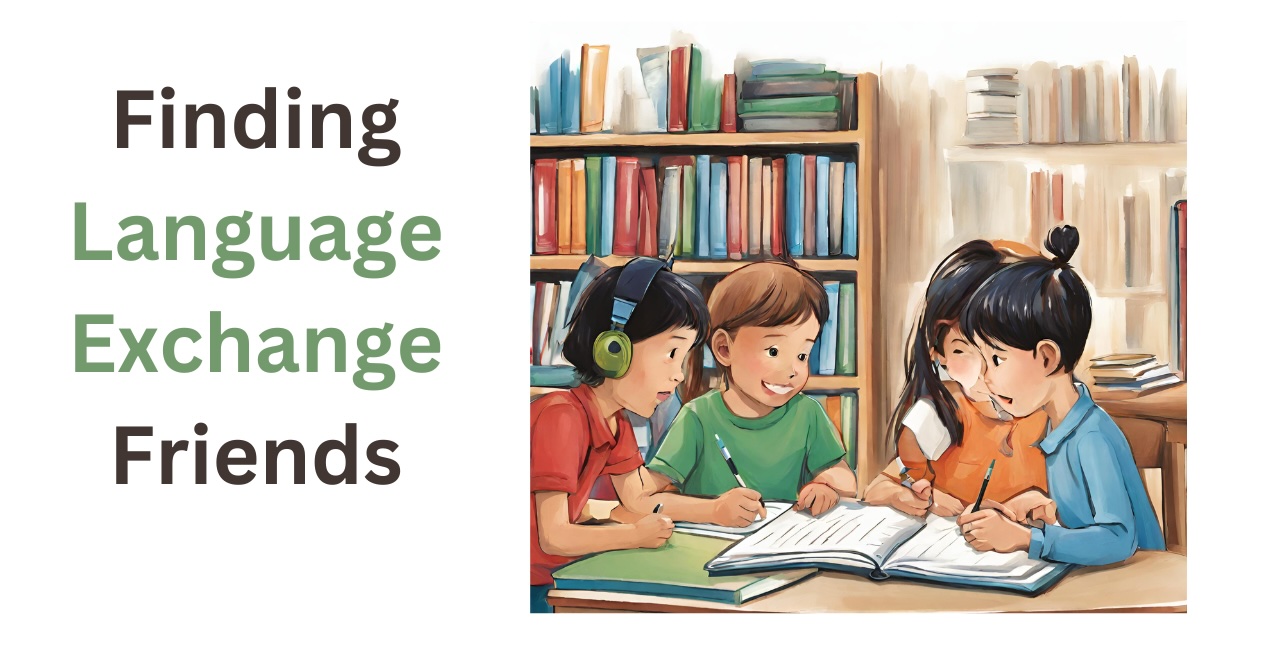Finding Language Exchange Friends
Mark Ericsson / 16 Apr
Before I get into the details of how to go about finding language exchange friends, let me share an anecdote from when I was learning Korean.
An Anecdote
When I lived in Korea (South Korea, that is), I was very fortunate to find a language exchange group almost immediately upon emigrating to the country. At the group, I was able to make Korean friends much faster than I otherwise would have just by showing up, and I was able to improve in my Korean abilities in a natural sort of way.
We met at a café nearly every week and often had a second round at a pub or eatery. It was a great way to hear Korean spoken in 1-on-1 situations and in group contexts. Likewise, the group was very popular among Koreans – so popular, in fact, that the organizers had to limit the number of Koreans – who were keen on improving their English abilities. Through the club, I had some great experiences and eventually attended baseball games, noraebang (Korean karaoke) events, bowling, horse racing, billiards, weddings, and more due to the friendships I made there.
My Korean improved little by little – sometimes haphazardly – but most importantly my motivation to learn Korean and my enjoyment of the learning process increased monumentally. I kept notebooks of the tidbits of information I gathered through the language exchange, and when I returned to America, I was highly motivated to keep studying Korean – and maintained that desire to keep studying until I returned to the country a few years later.
Suggested Guidelines:
Consider your Goals – What do you want out of language exchange? Are you looking to make close friends? Is your goal to expand your social life? Do you want to practice at an easy level in your target? Or are you looking to be stretched? Language exchange can and should be fun, but it also helps to do it at least somewhat purposefully.
Search for friends – There are many avenues for finding language exchange friends. Some may already be your neighbors and they may be the reason you have decided to take up the new language. Another way is to join a meetup group, like the one I attended in Korea. Online options are also a great way to go, and Lingocard was designed with chat and audio services with this in mind. The nice thing about our social media group is that it is filled with other learners who want to connect. That is the main key. Look for people who want to connect and communicate.
Communicate with Respect - It is important to be respectful with any language exchange partners about your interests. As an exchange, it is best to view it as both give-and-take.

Language Exchange can sometimes be like dating in that you are trying to find others who are compatible with your interests, desires, etc. If you are primarily trying to date, then a language exchange can be a way to do that – but be respectful about how you communicate that interest – some may express mutual interest but some may not be interested at all in dating. The same goes for other interests: sports, music, art, film, fine dining, exercise, etc.
Consider a framework for how to interact – As you get to know your potential language exchange partners, it is worth thinking about a simple framework for how you want to interact.
When I was in Korea, my best language exchange experiences always had a basic weekly schedule. The first group always met on Tuesdays after work for an hour at one location, and then an hour or so at another location, for example. But in other cases it was enough to chat a few times a month.
If you really get along with someone it may turn into a more frequent occurrence, several times a week in shorter bursts. With texting, it is okay to let things develop naturally, but it is also okay to set some expectations.
Try to balance the languages – If you can, try to keep your exchange around 40-60% or so in the two languages. Try to not to let the use of one language completely dominate the other language the whole time. It is okay to stretch this to 30-70%, but if you go much beyond that, then be sure that both parties are happy with the set-up. 😊
Enjoy!
Finally, have fun! The purpose is to enjoy it. A language exchange involves learning, but it is not school – it is more akin to having a fun hobby and meeting friends! So, go out and make some new friends!